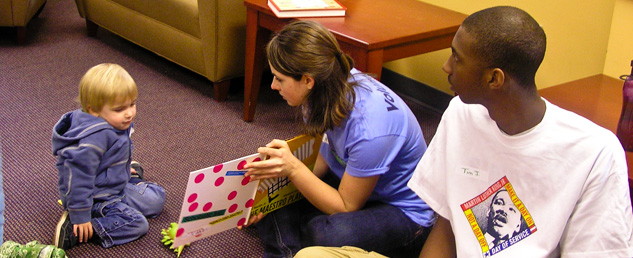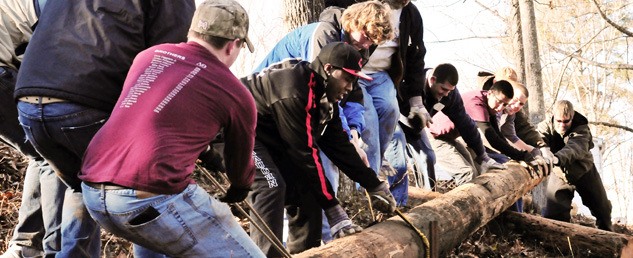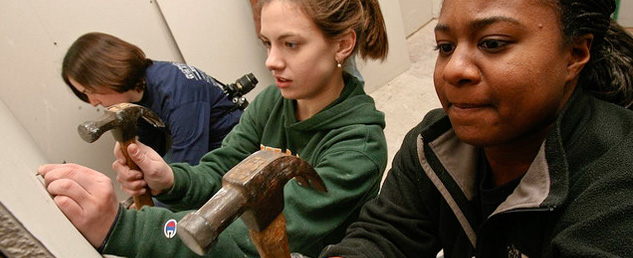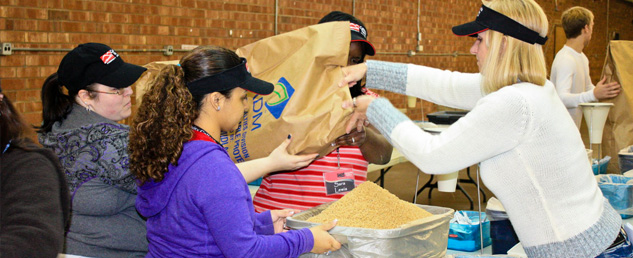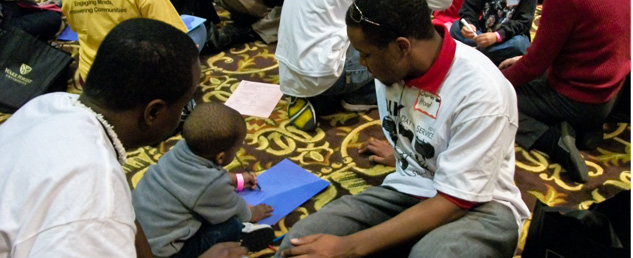By Spoma Jovanovic, Associate Professor, Dept. of Communication Studies, UNCG
 Guiding my philosophy of teaching is a belief that students are architects of society, not just consumers of it. Together, we examine the ways we have constructed our worlds for good or ill, and the connections that bind us across difference. We participate in a range of discourses that provide real opportunity for democratic expression, and genuine participation. My aim in teaching is to move my students to collective action that strengthens the bonds of community and quality of life for all in our democratic society.
Guiding my philosophy of teaching is a belief that students are architects of society, not just consumers of it. Together, we examine the ways we have constructed our worlds for good or ill, and the connections that bind us across difference. We participate in a range of discourses that provide real opportunity for democratic expression, and genuine participation. My aim in teaching is to move my students to collective action that strengthens the bonds of community and quality of life for all in our democratic society.
Putting that teaching philosophy into practice is not always easy but certainly rewarding. When it works, students are active and thoughtful in the community, improving the social condition for some group in ways that improve the condition for us all. In doing so, together we find ourselves—teacher and students—drawn into community politics to examine the policies, legal precedents, and processes within grassroots organizations and political institutions. If we are lucky, one or more of us will be compelled to take action that furthers the values of community, relationship building, ethics, and justice.
Yes, my courses frequently stipulate community involvement or service-learning in order for students to have a corporeal understanding of what the community offers or fails to offer its members. Students see, feel, and come to know about the community by working alongside others to experience the current conversations, problems, and opportunities.
Because I think the learning is better when hands-on experiences augment reading and research, my students initiate or, importantly, continue the work completed before them, on a number of programs. Whether it is engaging in anti-war protests, planning a greenway project, or designing a new day shelter for the homeless, students invite dialogue with local leaders, provide service to grassroots initiatives, and examine the structures that sustain the gap of injustice between social classes, races, and other social variables. Their actions have included:
- Development of a multi-year civic literacy program with high school students to develop critical thinking, public speaking, and advocacy skills that led to school dress code changes and later, public transit improvements and policy changes to increase the number of bus benches and shelters for transit users.
- Benchmark survey collection and analysis, spoken word performances, oral history interviews, web design, conference organizing, and transcription services for the United States’ first Truth and Reconciliation Commission which was launched and sustained by community members to address racial and economic injustices. Students organized and participated in varied deliberative forums in the community.
- Policy challenge of a park’s rule prohibiting political speech that resulted in a change now permitting the exercise of free speech.
- Cultural brokering services for Montagnard refugees including English tutoring, school intervention assistance, military contacts, and after-school recreation programming.
The task before us, as I see it, is to teach students how to be active, thriving members of the community in ways that advance their intellectual capacities and collective compassion.

